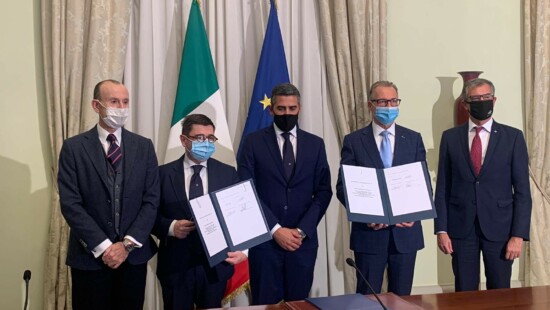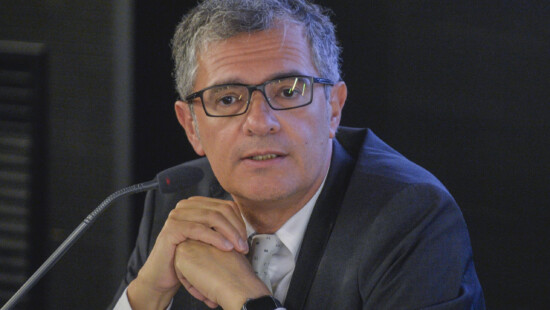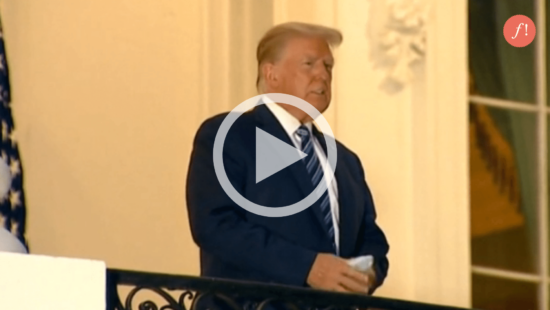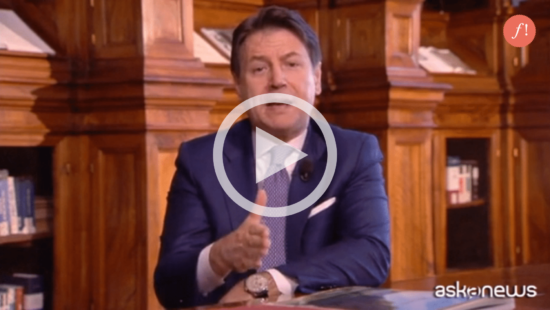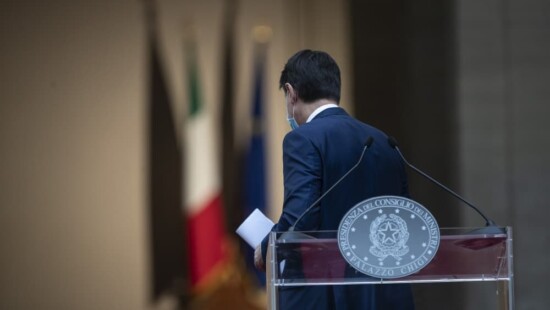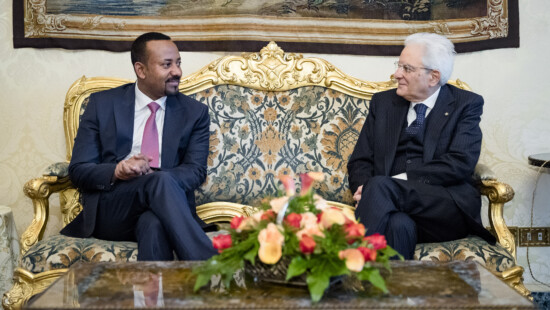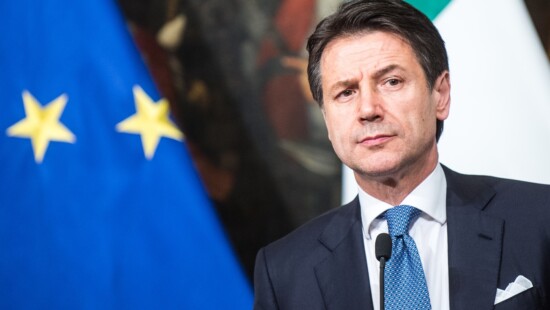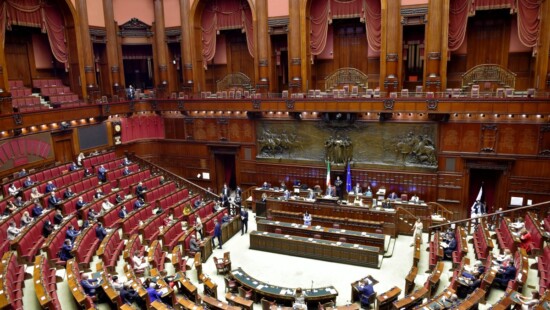Vale 495 milioni di euro il contratto siglato oggi a Palazzo Chigi da Thales Alenia Space Italia con l’Esa per le “sentinelle” di Copernicus che monitoreranno l’Artico. Tanta Italia (con Leonardo) anche sulle altre missioni del programma
Archivi
Così lo Spazio italiano cresce (e punta alla Luna). Parla Saccoccia (Asi)
Conversazione con il presidente dell’Asi Giorgio Saccoccia sui contratti siglati dall’Esa per le nuove “sentinelle” di Copernicus. L’Italia è in prima fila “con un ritorno importantissimo economico, di ruolo e tecnologico”. L’arrivo di Biden alla Casa Bianca? “Non credo che il programma lunare Artemis verrà fermato; l’Italia ci tiene tantissimo”
Trump vieta investimenti in aziende cinesi, l'ira di Pechino. Il video
Trump vieta investimenti in aziende cinesi, l'ira di Pechino [embedyt] https://www.youtube.com/watch?v=Efhld5og-0w[/embedyt] Milano, 12 nov. (askanews) - La Cina si è congratulata ufficialmente con Joe Biden per la vittoria alle presidenziali americane. E lo ha fatto con un tempismo perfetto, subito dopo una nuova provocazione di Donald Trump. Il presidente degli Stati Uniti in carica ha preso ieri la decisione di…
Conte: "Primi effetti delle misure, confido che l'RT scenda sotto 1,7". Il video
Conte: "Primi effetti delle misure, confido che l'RT scenda sotto 1,7" [embedyt] https://www.youtube.com/watch?v=EUgCjNHjkh4[/embedyt] Milano, 13 nov. (askanews) - Le misure del governo cominciano a far vedere i primi effetti sulla curva del contagio da coronavirus secondo il presidente del Consiglio Giuseppe Conte che ne ha parlato intervenendo alla prima giornata dell'iniziativa "Futura: lavoro, ambiente, innovazione" promossa dalla Cgil. "Io confido…
Phisikk du role - L’equilibrio del Conte II: après moi le déluge!
Il suo essere senza partito, la sua aura di “tecnicità“, la sua flessibilità, nel periodo storico che celebra non la forza, non la capacità di aggregare consenso, ma sopra ad ogni altra qualità soprattutto la resilienza, fa apparire Conte come le colonne d’ Ercole della legislatura. La rubrica di Pino Pisicchio
Etiopia, cosa c’è dietro alla crisi. Parla Casola (Ispi)
Cosa c’è dietro al conflitto in Etiopia, dove il rischio dell’ampliamento degli scontri all’instabile quadro regionale è la preoccupazione maggiore della Comunità internazionale. L’analisi di Camillo Casola, research fellow dell’Africa Programme dell’Ispi
Mosca e i "giochi di guerra" per bambini. Il campo di prigionia a Carelia
Sul set di un film finanziato dallo stato nel 2019, sarà aperto a dicembre uno spazio per istruire i più piccoli sulla storia militare patriottica della Russia, con filo spinato, torri di controllo e caserme…
Nagorno Karabakh. Perché Putin ha vinto. Il commento di Mikhelidze
Il conflitto tra Armenia e Azerbaigian si è tradotto nella vittoria dell’asse tra autocrazie (Mosca, Ankara e Baku) contro il tentativo democratico di Erevan. Un accordo valoriale con cui Putin ha spazzato via l’Occidente dal Nagorno-Karabakh. Conversazione con Nona Mikhelidze, head of the Eastern Europe and Eurasia Programme dell’Istituto affari internazionali
Italia-Usa, il governo Conte alla prova Kkr. Ecco perché
Durante il Cdm dal comitato Golden power di Palazzo Chigi potrebbero arrivare prescrizioni per il fondo americano Kkr in Fibercop, la newco creata ad agosto nella partita per la rete unica. Un messaggio politico: le aziende americane sono sottoposte allo stesso scrutinio di quelle cinesi, come Huawei. A Washington DC difficilmente gradiranno
Il Parlamento e i tempi strettissimi per la legge di Bilancio
Non si vede nemmeno all’orizzonte nessuno dei “missi dominici” che dovrebbero portare alla Camera dei Deputati i documenti della prossima legge di bilancio per il 2021. Siamo perciò di fronte all’ennesima mortificazione delle prerogative del Parlamento. Il commento di Riccardo Pedrizzi




